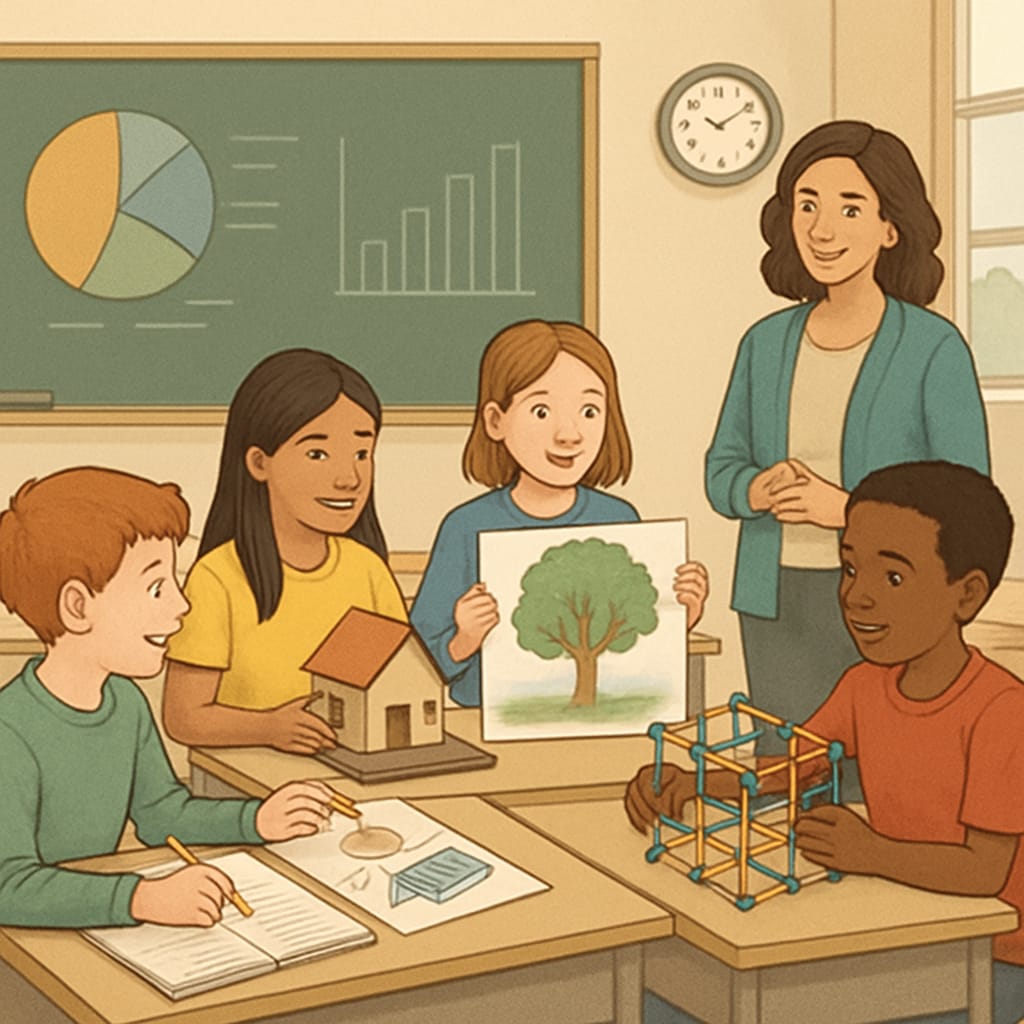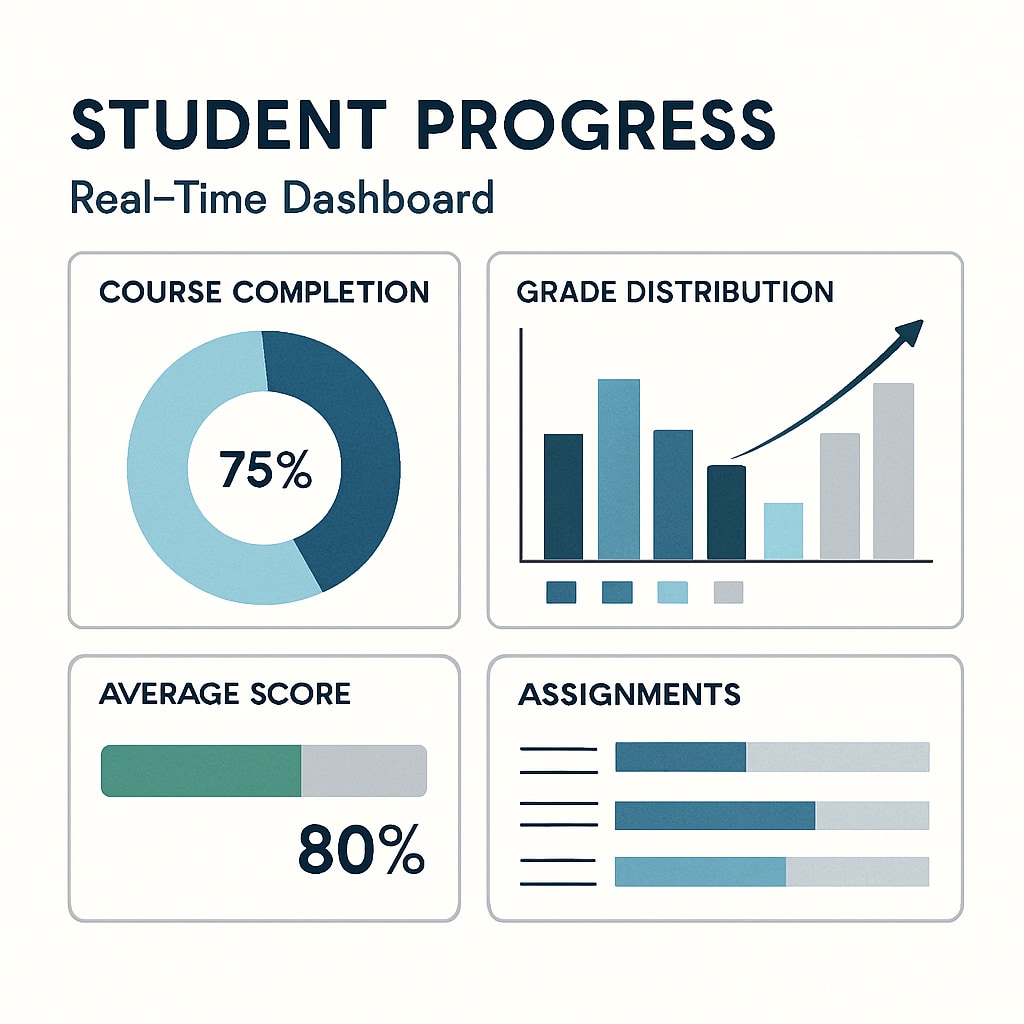In today’s educational landscape, the reliance on grades as the primary measure of achievement has sparked significant debate. While grades offer a standardized approach to evaluating learning outcomes, they often fail to capture a student’s holistic development and unique abilities. This article explores alternative methods of learning assessment, including formative evaluations, skill-based measurements, and personalized learning trajectories, to ensure more inclusive and effective educational practices. By incorporating real-time tracking systems and diverse assessment strategies, educators can better support individual student success and growth.
Limitations of Traditional Grade-Based Assessments
Grades have long been the cornerstone of educational evaluation, but their effectiveness as a singular metric is increasingly questioned. For example, grades often reflect a student’s performance at one point in time, ignoring the nuances of their learning journey. Moreover, they can inadvertently foster unhealthy competition among students rather than encouraging collaborative and exploratory learning.
Other challenges include:
- Failing to measure critical soft skills such as communication, creativity, and teamwork.
- Overlooking the importance of personalized learning paths and diverse talents.
- Encouraging rote memorization instead of deep understanding.
As a result, educators and policymakers are now seeking more dynamic approaches to assess student performance and learning outcomes.

Innovative Alternatives to Grade-Based Assessment
To address the limitations of traditional grades, educators can employ methods that better reflect a student’s comprehensive learning experience. Below are three promising alternatives:
1. Formative Assessments
Rather than focusing solely on summative evaluations, formative assessments offer continuous tracking of a student’s progress. These evaluations include regular feedback, peer reviews, and teacher-student discussions, enabling real-time adjustments to learning strategies. Formative assessments are particularly effective at identifying strengths and areas for improvement throughout the learning process.
2. Skill-Based Evaluations
Skill-based assessments focus on specific competencies, such as problem-solving, leadership, and technical expertise. For example, project-based learning can help evaluate a student’s ability to apply theoretical knowledge in practical scenarios. These methods encourage students to develop and showcase their unique abilities beyond standard academic benchmarks.
3. Personalized Learning Trajectories
Modern educational tools, such as adaptive learning platforms, allow for the creation of individualized learning paths. These systems use data-driven insights to track student progress, making it easier to tailor instruction to their needs. Personalized trajectories not only enhance engagement but also ensure that every student reaches their full potential.

The Role of Technology in Real-Time Tracking
Technological advancements have paved the way for real-time tracking systems, which are revolutionizing how educators assess learning outcomes. These systems use analytics to monitor students’ performance across various metrics, offering actionable insights that can inform teaching strategies. For example, platforms like adaptive learning software or digital portfolios allow teachers to track a student’s progress longitudinally, rather than relying on isolated exam results.
Benefits of real-time tracking include:
- Providing immediate feedback to students and parents.
- Highlighting individual strengths and areas needing improvement.
- Reducing biases associated with traditional grading systems.
As a result, technology-driven assessments can foster a more equitable and inclusive educational environment.
Implementing a Holistic Assessment Model
Transitioning to a holistic assessment model requires collaboration among educators, administrators, and policymakers. Key steps include:
- Training educators to use alternative evaluation methods effectively.
- Integrating technology platforms for real-time tracking and personalized learning.
- Encouraging parent and student involvement in the assessment process.
By adopting these strategies, schools can move beyond grades to create a more inclusive, skill-driven educational system.
In conclusion, while grades continue to play a role in education, relying solely on them limits the ability to truly understand and support student growth. By embracing alternative assessment methods such as formative evaluations, skill-based measurements, and real-time tracking, educators can build a system that prioritizes learning outcomes and individual development. Moving forward, adopting these innovative approaches can transform K12 education into a more dynamic and effective learning environment.


